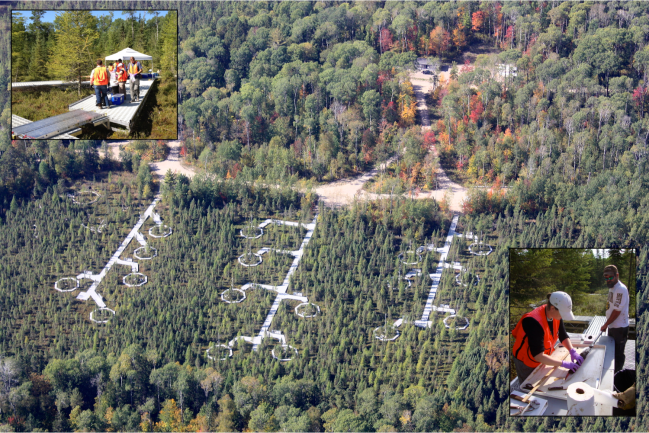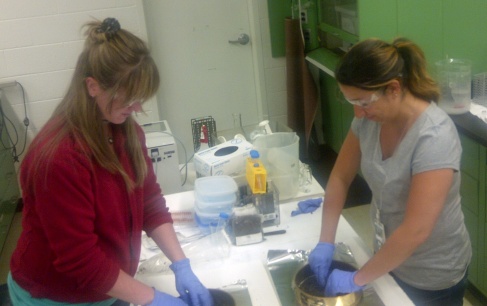The Deutsche Forschungsgemeinschaft (DFG) funds a large-scale grassland project “The Jena Experiment” (www.the-jena-experiment.de) on the relationship between Biodiversity and Ecosystem Functioning (Grant FOR 1451). On a 10ha field site in Jena, more than 470 grassland plots have been established where plant diversity is manipulated to measure the effect of diversity on multi-trophic interactions and nutrient cycling. Applications are sought for the following position:
Ph.D. position (PhD-TE-013060) – A short description of the position is given below.
The project is an international collaborative research effort of 11 universities and research institutes in Germany, three universities in Switzerland, two in The Netherlands as well as universities and research institutes in Austria, France and Canada. All Ph.D.-students will benefit from an already existing experimental set up and the interaction with other PhDs and researchers in an international research team. The ability to speak and write German will be appreciated but is not indispensable for candidates fluent in English. A full description of the project and more details about the positions can be found under: www.the-jena-experiment.de
Selection of applicants starts 10. April 2013 and continues until positions are filled. Starting dates depend on the position on offer. Applications – in a single pdf-file only – should be sent to the addresses given below.
Ph.D.-positions in Soil/Plant Ecology
We offer a PhD position in Wageningen at the department of Terrestrial Ecology at The Netherlands Institute of Ecology (NIOO-KNAW, Prof. Wim van der Putten), in close collaboration with the Soil Quality department at Wageningen University (Dr. Gerlinde De Deyn) and the department of Ecology and Biodiversity at Utrecht University (Prof. George Kowalchuk).
The research focuses on the role of plant-soil feedbacks in the relation between plant (trait) diversity and ecosystem functioning. Plant species influence the composition of soil biota and these influences have feedback effects to the role of plant species in plant communities and the ecosystem processes that emerge from these communities. Previous research has shown that plant species differ in the strength and direction of plant-soil feedback. However, the roles of different soil microorganisms (bacteria, fungi) have yet to be elucidated. In the present project, you will relate the composition of soil microorganisms to plant traits in plant communities and consequent ecosystem functioning. We intend to investigate to what extent plant species create specific rhizosphere communities and how these communities differentially impact on plant growth. Candidates should have a MSc degree in soil biology/ecology, microbiology or plant ecology. We are looking for candidates with:
- good ability to think conceptually and quantitatively
- good knowledge of plant-soil (biotic) interactions
- experience with working with soil organisms
- affinity with state-of-the art soil molecular biological techniques
- excellent ability to communicate in English, both orally and in writing
- experience with writing scientific papers is highly appreciated
- good organisational skills and ability to work independently
- ability to work in multidisciplinary research teams
Contact: Dr. Gerlinde De Deyn, Dept. of Soil Quality, Wageningen University, Droevendaalsesteeg 4, 6708 PB Wageningen, The Netherlands. Email: gerlinde.dedeyn@wur.nl
Applications: Please send your application with vacancy number (PhD-TE-013060), including a cover letter detailing your motivation for and expectations from this position, your CV including a summary of your past research, and contact information for three references to vacature@nioo.knaw.nl. The closing date is 10th of April 2013.





